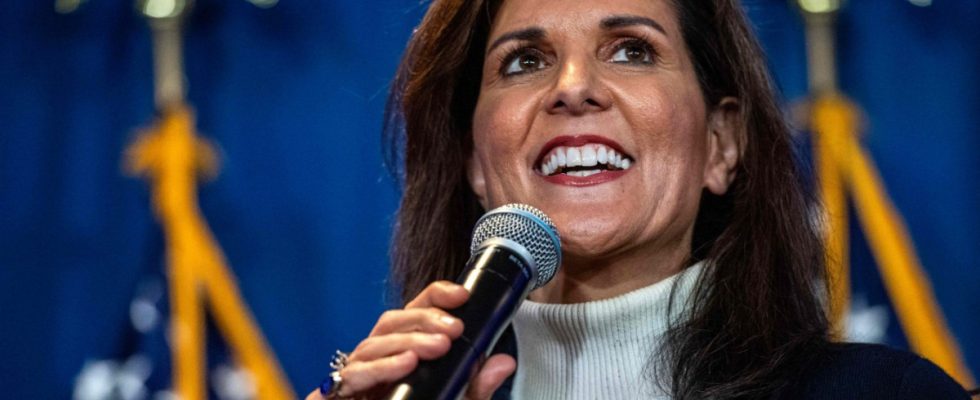In the US Republican presidential primaries, former UN Ambassador Nikki Haley achieved her first victory in a duel against former President Donald Trump. Haley won the internal party vote in the capital district of Washington, as the Republican Party in Washington announced on Sunday evening (local time) after the vote. The result does not change Trump’s clear dominance in the race, but it breaks his previous winning streak and gives Haley at least a symbolic success – even if only a small one.
Trump had previously won all party primaries and is also the clear favorite in the remaining votes. Despite various scandals, escapades and a chaotic term as president, the 77-year-old has great support among the party base. Even major legal problems in the election year – four indictments in criminal proceedings and significant damages in civil proceedings – have so far not harmed Trump politically.
It is unclear how long Haley will remain in the race, as she is effectively no longer given a chance to beat Trump. Even in her home state of South Carolina, where Haley was once governor, Trump won by a wide margin at the end of February. Supporters of the ex-president have been calling on the 52-year-old for weeks to give up and end her election campaign. However, Haley has so far emphasized that she will stick around at least until Super Tuesday: This is the next big milestone in the election year. On Tuesday, March 5th, voting will take place in parallel in more than a dozen states.
Anyone who wants to become a presidential candidate in the USA must first prevail in these internal party primaries. The primary election voting process is complex and varies from state to state. The two major parties vote on the delegates who will then choose their candidate for the White House at the nomination party conventions in the summer. The Republican nomination convention will take place in mid-July in Milwaukee, Wisconsin. 2,429 delegates meet there. To win, a candidate must gather at least 1,215 delegates behind them. Trump had already won 244 delegates in the past few weeks, while Haley only won 24.
Since the Capital District of Washington only has 19 delegate votes up for grabs, Haley’s victory doesn’t really change the balance of power there. The US capital is very democratic, urban, and highly educated. Washington is considered a stronghold of the anti-Trump camp, supporters of the ex-president are clearly underrepresented here – hence Haley’s success, which is of a more symbolic nature.
On the other hand, the outcome of Super Tuesday will be politically significant: in the votes in 15 states on Tuesday, more than a third of all delegate votes will be awarded for the Republican nomination convention. It could very well be that Haley throws it afterwards. The actual presidential election is finally taking place on November 5th. For the Democrats, incumbent Joe Biden would like to run for another term. He has no serious competition in his party’s internal race. At the moment everything indicates that Biden and Trump will ultimately compete against each other again.

